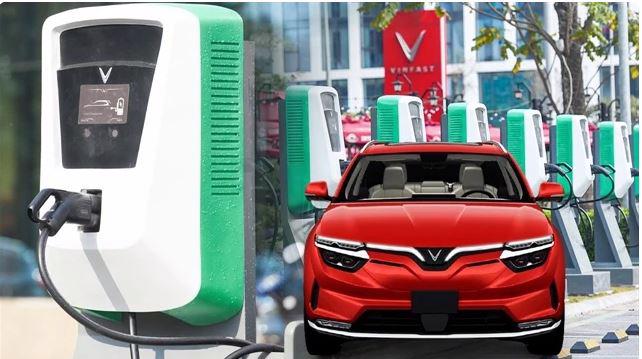Vietnam is strongly determined to shift towards electric vehicles
Its aim is to achieve net-zero emissions by 2050 as committed.
Vietnam is highly determined to transform towards green practices across various industries, including the car industry, with an aim to achieve net-zero emissions by 2050, as it had committed, according to a report from the English language daily Vietnam News.
The daily reported that after Prime Minister Pham Minh Chinh made commitments at COP26, the government has implemented strong and drastic measures, such as Decision 876 in July 2022, which outlines a roadmap for the transportation sector to achieve net-zero emissions by 2050.
So far, according to the report, 57 out of 63 centrally-run localities nationwide have issued action plans to implement Decision 876, and two out of five ministries have also developed their own action plans. The remaining government agencies are in the process of developing their own plans as well.
This indicates a widespread and coordinated effort by the Vietnamese government at both the national and local levels to drive the green transition, especially in the critical transportation sector, the daily remarked
Green transformation is a global imperative, but Vietnam is still in the early stages of implementation compared to other countries. This means the country has a lot of work ahead to build the necessary legal, institutional and policy frameworks, it recommended.
In the transportation sector, according to the newspaper, road transport is the largest contributor to greenhouse gas emissions, responsible for around 85% of the total emissions from the sector or approximately equivalent to 32 million tones of CO2 per year. This makes the transition to clean energy sources in road transport a critical priority.
The Government has demonstrated strong and clear policies supporting the energy transition and the shift to electric vehicles (EVs), the newspaper reported, adding that a roadmap for this transition already exists, primarily employing support measures like special consumption tax and registration fee reductions for EVs.
However, for the green transformation to succeed, the cooperation of the people is essential. Therefore, it is crucial for the Government to announce a clear roadmap to phase out the production and circulation of fossil fuel vehicles. Furthermore, the Government should provide comprehensive information on the effectiveness and benefits of pure electric vehicles, enabling citizens to make informed decisions about their future transportation choices, it recommended.
For businesses, the Government needs to establish specific policies that facilitate their participation in energy transition. These policies should include access to loans, favorable financial conditions and incentive mechanisms, creating a level playing field at the national level. Specific circulars and guidelines are necessary to enable businesses to contribute effectively, the newspaper proposed.
Currently, there are various incentive regulations, such as those in the carbon market. However, businesses will feel more secure in investing when they see clear mechanisms and frameworks in place, it remarked.
According to the newspaper, to effectively promote the electric vehicle (EV) industry in Vietnam, it is essential to implement policies that encourage manufacturers, especially domestic ones and conduct awareness campaigns to inform the public about the benefits of EVs.
The Government should conduct campaigns through media, social platforms and community events to educate the public about the environmental and economic benefits of EVs, it said.
It quoted former Director of the Vietnam Institute of Economics, Dr. Tran Dinh Thien, as underscoring the importance of robust support policies for Vietnam's electric vehicle industry.
Dr. Thien advocated for measures like guarantees and capital loans to enhance competitiveness through economies of scale. Government support in areas such as interest rates, deadlines and taxes is crucial to bolster Vietnamese EVs on the global stage, promoting national benefits aligned with environmental sustainability. This approach, he emphasized complements rather than contradicts market principles, fostering a competitive domestic industry with global reach.
In agreement, Hoang Duong Tung from the Vietnam Clean Air Network and the Vietnam Association for the Protection of Nature and Environment was also quoted by the newspaper as advocating for the electrification of all public transport, not limited to taxis, as a means to reduce noise and pollution.
His advocacy extends to promoting cleaner and quieter transportation options across various sectors to enhance environmental sustainability in Vietnam, the newspaper added.









 Google translate
Google translate